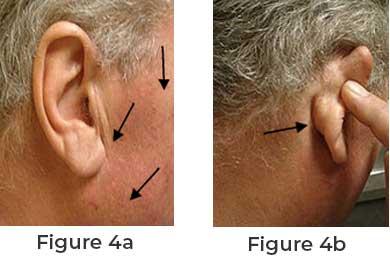Understanding Facial Nerve Cancer: Diagnosis, Treatment, and Outlook

Facial nerve cancer, while rare, is a serious
condition affecting the facial nerve, which controls facial expressions and
movements. This type of cancer can disrupt not only physical appearance but
also essential functions such as speaking, eating, and blinking.
What is Facial Nerve Cancer?
Facial nerve cancer,
also known as facial nerve malignancy, often originates from tumors that invade
or press against the facial nerve. These tumors can be primary cancers, such as
squamous cell carcinoma, or secondary, as part of a metastatic process from
other cancer sites. Symptoms often include facial weakness, paralysis,
numbness, or twitching, as well as possible pain or difficulty with facial movements.
Diagnosis
Diagnosing facial nerve cancer involves a
combination of imaging and biopsy. Advanced imaging techniques, such as MRI or
CT scans, help visualize the extent of the tumor and its impact on surrounding
structures. A biopsy, either through needle aspiration or surgical means, is
essential for confirming the presence of cancer cells and determining the
cancer type.
Treatment Options
Treatment for facial nerve cancer varies based on
the tumor’s location, size, and whether it has spread. Common approaches
include:
1. Surgery:
The primary treatment often involves surgical removal of the tumor. This can be
complex, as it requires preserving as much of the facial nerve as possible to
maintain function. In some cases, reconstructive surgery may be needed to
address facial deformities or restore function.
2. Radiation
Therapy: Used either alone or in combination with surgery, radiation
therapy targets cancer cells and helps shrink tumors. It is particularly useful
for cancers that are difficult to remove completely or for treating residual
cancer cells post-surgery.
3. Chemotherapy:
This may be employed for cancers that have metastasized or are not amenable to
surgical resection. Chemotherapy targets cancer cells throughout the body but
can have significant side effects.
Prognosis and Follow-Up
The prognosis for facial nerve cancer depends on
several factors, including the cancer’s stage, type, and the success of
treatment. Early detection and treatment generally improve outcomes.
Post-treatment, regular follow-up appointments are crucial to monitor for
recurrence and manage any long-term effects on facial function.
Living with facial nerve cancer requires a
multidisciplinary approach to address both the physical and emotional impacts.
Support from a team of specialists, including oncologists, surgeons, and
therapists, along with a strong support network, can significantly enhance
quality of life and recovery.


Comments